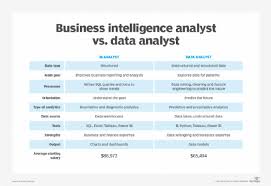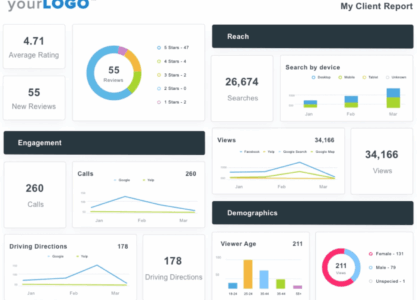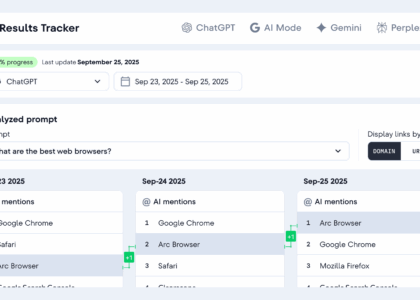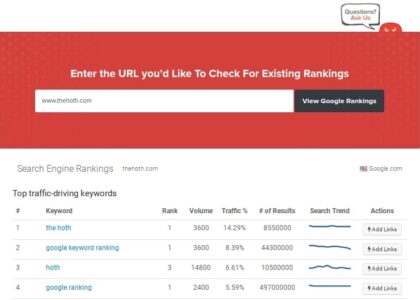The Power of Business Intelligence and Data Analytics
In today’s digital age, businesses are inundated with vast amounts of data generated from various sources such as customer interactions, sales transactions, social media, and more. This abundance of data presents both a challenge and an opportunity for organisations to leverage the power of business intelligence (BI) and data analytics.
Understanding Business Intelligence
Business intelligence involves the use of tools and techniques to transform raw data into meaningful insights that can drive strategic decision-making. By collecting, analysing, and visualising data, BI enables businesses to gain a comprehensive view of their operations, identify trends, and make informed choices to improve performance.
The Role of Data Analytics
Data analytics is a subset of BI that focuses on applying statistical algorithms and machine learning techniques to uncover patterns and correlations within data sets. By delving deeper into the data, organisations can extract valuable insights that help them predict future trends, optimise processes, and enhance overall business efficiency.
The Benefits for Businesses
Implementing BI and data analytics provides several key benefits for businesses:
- Improved Decision-Making: By having access to real-time insights, businesses can make faster and more informed decisions based on data-driven evidence.
- Enhanced Operational Efficiency: Identifying inefficiencies in processes allows organisations to streamline operations and allocate resources more effectively.
- Better Customer Understanding: Analysing customer behaviour helps businesses tailor their products and services to meet specific needs, leading to increased customer satisfaction.
- Competitive Advantage: Leveraging BI and data analytics gives businesses a competitive edge by enabling them to stay ahead of market trends and anticipate changes in consumer preferences.
The Future of Business Intelligence
As technology continues to evolve rapidly, the future of BI is set to be even more dynamic. Advancements in artificial intelligence (AI) and machine learning will enable businesses to extract deeper insights from their data while automation will streamline processes further. Embracing these innovations will be crucial for organisations looking to thrive in an increasingly data-driven world.
In conclusion, business intelligence and data analytics play a vital role in helping businesses harness the power of their data to drive growth, innovation, and competitive advantage. By investing in these capabilities, organisations can unlock valuable insights that pave the way for success in today’s fast-paced business landscape.
Six Key Benefits of Business Intelligence and Data Analytics for Strategic Advantage
- Enhanced decision-making through data-driven insights
- Improved operational efficiency by identifying and addressing bottlenecks
- Better understanding of customer behaviour and preferences
- Increased competitive advantage by staying ahead of market trends
- Optimised resource allocation for maximum effectiveness
- Facilitates strategic planning based on accurate and timely information
Challenges of Business Intelligence and Data Analytics: Navigating Complexity, Cost, Privacy, and Integration
Enhanced decision-making through data-driven insights
Enhanced decision-making through data-driven insights is a key advantage of utilising business intelligence and data analytics. By leveraging the power of data, organisations can access real-time information and valuable trends that enable them to make informed decisions with greater confidence. This proactive approach allows businesses to anticipate market changes, identify opportunities for growth, and mitigate risks effectively. Ultimately, the ability to base decisions on concrete data rather than intuition leads to more strategic and successful outcomes, positioning companies for long-term success in today’s competitive business landscape.
Improved operational efficiency by identifying and addressing bottlenecks
Improved operational efficiency is a significant advantage of utilising business intelligence and data analytics. By identifying and addressing bottlenecks within processes, organisations can streamline operations, reduce delays, and optimise resource allocation. Through data-driven insights, businesses can pinpoint areas of inefficiency and take proactive measures to enhance productivity and performance. This proactive approach not only improves overall operational efficiency but also leads to cost savings and increased competitiveness in the market.
Better understanding of customer behaviour and preferences
One significant advantage of implementing business intelligence and data analytics is the ability to gain a better understanding of customer behaviour and preferences. By analysing data related to customer interactions, purchase history, and feedback, businesses can uncover valuable insights that help them tailor their products and services to meet specific customer needs. This deeper understanding enables organisations to create targeted marketing campaigns, improve customer satisfaction, and build long-lasting relationships with their clientele. Ultimately, leveraging business intelligence and data analytics to comprehend customer behaviour empowers businesses to make informed decisions that drive growth and success.
Increased competitive advantage by staying ahead of market trends
One significant advantage of utilising business intelligence and data analytics is the ability to stay ahead of market trends, thereby gaining a competitive edge. By analysing data in real-time and identifying emerging patterns and consumer preferences, businesses can make proactive decisions to adapt their strategies accordingly. This proactive approach enables organisations to anticipate market shifts, innovate faster, and position themselves as industry leaders, ultimately enhancing their competitive advantage in a dynamic business landscape.
Optimised resource allocation for maximum effectiveness
One significant advantage of implementing business intelligence and data analytics is the ability to optimise resource allocation for maximum effectiveness. By analysing data insights, businesses can identify areas of inefficiency or underperformance within their operations and make informed decisions on how to allocate resources more strategically. This proactive approach ensures that resources are directed towards activities that yield the highest return on investment, ultimately leading to improved efficiency, productivity, and overall business performance.
Facilitates strategic planning based on accurate and timely information
Business intelligence and data analytics offer a significant advantage by facilitating strategic planning based on accurate and timely information. By harnessing the power of data analysis, businesses can make informed decisions backed by real-time insights. This capability enables organisations to anticipate market trends, identify opportunities for growth, and mitigate risks effectively. With access to up-to-date and precise information, businesses can develop strategic plans that align with their goals and drive sustainable success in today’s competitive landscape.
Complexity
One significant drawback of business intelligence and data analytics is the inherent complexity involved in implementing and managing these solutions. The intricacies of setting up and maintaining BI and data analytics systems often demand specialised skills and expertise, posing a challenge for businesses that lack the necessary resources. Navigating through the technical complexities, ensuring data accuracy, and interpreting complex algorithms can be daunting tasks for organisations without the right personnel or training, potentially hindering their ability to fully leverage the benefits of these powerful tools.
Cost
Developing and maintaining business intelligence and data analytics systems can present a significant challenge in terms of cost, particularly for small to medium-sized enterprises operating within limited budget constraints. The investment required for implementing robust BI solutions, acquiring necessary tools and technologies, as well as training staff can place a strain on financial resources. This financial burden may deter smaller businesses from fully leveraging the benefits of BI and data analytics, potentially hindering their ability to compete effectively in today’s data-driven business environment.
Data Privacy Concerns
Gathering and analysing large amounts of data through business intelligence and data analytics can raise significant data privacy concerns. Businesses must navigate the delicate balance between extracting valuable insights from data and respecting individuals’ privacy rights. Ensuring compliance with stringent data protection regulations is paramount to safeguard sensitive information and maintain the trust of customers and stakeholders. Failure to address data privacy concerns adequately can result in legal repercussions, reputational damage, and loss of customer confidence, highlighting the importance of prioritising data privacy in all aspects of data-driven decision-making processes.
Integration Issues
Integration Issues can pose a significant challenge when implementing business intelligence and data analytics solutions. Integrating BI tools with existing systems and databases can be complex, leading to potential disruptions in operations. This process often demands additional resources and expertise to ensure seamless integration, which can strain both time and budget constraints. Overcoming integration issues requires careful planning, coordination, and technical know-how to minimise disruptions and maximise the effectiveness of BI implementations within an organisation.






